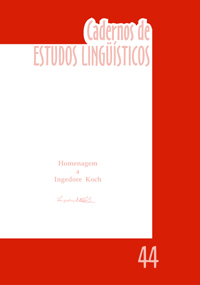Resumo
In Mozambique, the Portuguese language, associated with the promotion of national unity and consciousness, has become not only a political-administrative vehicle but also formative of communicative models and a bolster for socio-economic values. By force of the internal structure of the Bantu languages and African imagination, the Portuguese language is dragged toward new, innovative creations, where two aspects can be highlighted: the decomposition of segments of the Portuguese language imitating the Bantu phonetic-discursive sequentialization and metaphoric creation. It is this latter aspect we will be focusing on. The metaphor, provoking breaks in discursive sequence, brings cognitive contributions that are disturbing to our encyclopaedic knowledge. The metaphor, contrarily to metonymy and synecdoche, the metaphor creates categorical conflicts from which new perspectivizations result. The metaphor’s neuralgic crux is to establish negotiations between encyclopaedias. And the “encyclopaedias” focused on (“starting point” or “frame” (Pt. “quadro”) encyclopaedias) are those which result from daily life, from daily concerns, as are “corruption”, the “police” and the “politicians”, economic difficulties, the pleasures of life and the great moral principles of social life. The metaphor found in Mozambican Portuguese generally obeys the parameters of the metaphor: the concrete serves as a basis for abstract things, the physically perceptible is transferred mentally and contemplates all verbal categories: names and verbs, adjectives and phraseologies, idiomatic expressions and proverbs. The semic and classematic aspects are object of unexpected transferences. It is a new ontology in constant gestation.Referências
BLACK, Max. (1962). «Metaphor», ID. - Models and Metaphors, Ithaca, N. Y.: Cornell Univ. Press
CABRAL, A. Augusto C. Pereira. (1972). Pequeno dicionário de Moçambique (Moçambicanismos e termos nativos mais correntes), Lourenço Marques
CHARBONNEL, Nanine. (1999). «Métaphore et philosophie moderne», in: Charbonnel / Kleiber 199: 32-61
CHARBONNEL, Nanine & KLEIBER, Georges. (orgs.) (1999). La métaphore entre philosphie et rhétorique, Paris: puf
COSERIU, Eugenio (1979) - System, Norm und 'Rede', In: Coseriu, Eugenio (1979). - Sprache, Strukturen und Funktionen. Tübingen: Gunter Narr Verlag, 32-61.
FIRMINO, Gregório. (2002). A “questão linguística” na África-pós colonial: o caso do Português e das Línguas Autóctones em Moçambique, Maputo: Promédia
HONWANA, Alcinda Manuel. (2002). Espíritos vivos, tradições modernas. Possessão de espíritos e reintegração social pós-guerra no sul de Moçambique, Maputo: Promédia
KLEIBER, Georges. (1999). «Une métaphore qui ronronne n’est pas toujours un chat heureux», in: Charbonnel / Kleiber 1999: 83-134
KLEIBER, Georges. (1999). «De la sémaqntique de la métaphore à la pragmatique de la métaphore», in: Charbonnel / Kleiber 1999: 3-13
KLINKENBERG, Jean-Marie. (1999). «Métaphore et cognition», in: Charbonnel / Kleiber 1999: 135- 170
LE GUERN, Michel. (1973). Sémantique de la métaphore et de la métonymie, Paris: Larousse [trad. portuguesa (por Graciete Vilela): Semântica da metáfora e da metonímia, Porto: Telos, 1974]
LOPES, Armando J.; SITOE, Salvador Júlio & NHAMUENDE, Paulino José. (2002). Moçambicanismos. Para um Léxico de Usos do Português Moçambicano, Maputo: Livr. Universitária (Universidade de Eduardo Mondlane)
MANJATE, Teresa. (2000). O simbolismo no contexto proverbial Tsonga e Macua - LomwÈ, Maputo: Promédia
MENDES, Irene. O Léxico no Português de Moçambique (Aspectos neológicos e terminológicos), Maputo: Promédia
SPERBER, Dan & WILSON, Deirdre. (1995). Relevância: comunicação e cognição, Trad. de H. Santos Alves, Lisboa: Gulbenkian
VILELA, Mário. (2002). Metáforas do nosso tempo, Coimbra: Almedina
WEINRICH, Harald. (1963). «Sematik der kühnen Metapher», Deutsche Vierteljahrsschrift für Literaturwiss. und Geschichte, 37
WIERZBICKA, Anna. (1992). Semantics. Culture and Cognition: Universal Human Concepts in Culturespecific Configuration, Oxford: Oxford Univ. Press.
O periódico Cadernos de Estudos Linguísticos utiliza a licença do Creative Commons (CC), preservando assim, a integridade dos artigos em ambiente de acesso aberto.

